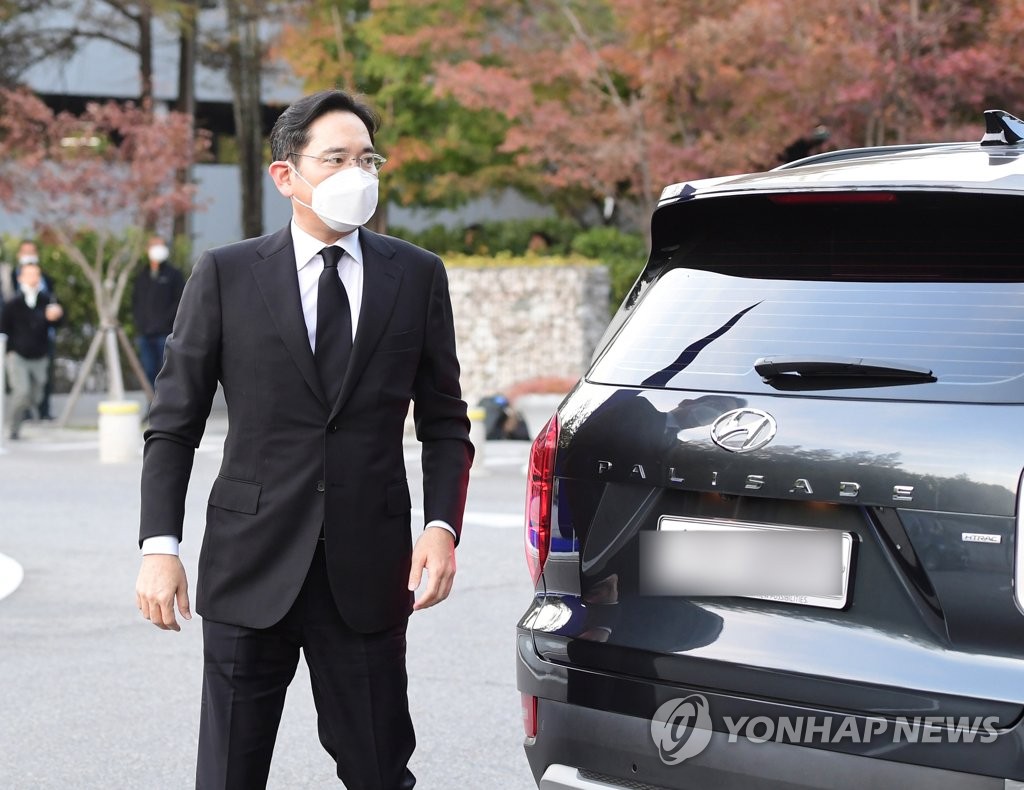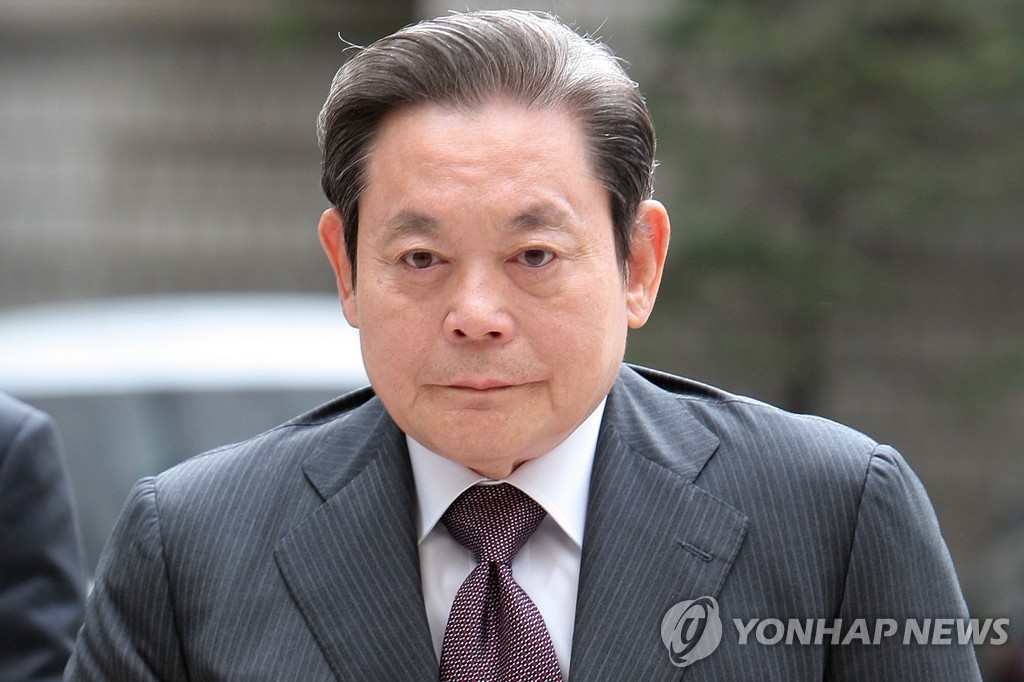- California Assembly OKs highest minimum wage in nation
- S. Korea unveils first graphic cigarette warnings
- US joins with South Korea, Japan in bid to deter North Korea
- LPGA golfer Chun In-gee finally back in action
- S. Korea won’t be top seed in final World Cup qualification round
- US men’s soccer misses 2nd straight Olympics
- US back on track in qualifying with 4-0 win over Guatemala
- High-intensity workout injuries spawn cottage industry
- CDC expands range of Zika mosquitoes into parts of Northeast
- Who knew? ‘The Walking Dead’ is helping families connect
Key Samsung units surge as succession issue looms following group chief’s death
Shares in Samsung Group’s key affiliates closed higher Monday on expectations that they may increase dividend payouts to help the late Samsung chief’s scions secure funds to pay record high inheritance taxes and they may overhaul their governance structures.
Samsung Group chief Lee Kun-hee died Sunday at age 78, more than six years after being hospitalized for a heart attack.
Shares in three Samsung affiliates held by the late group chief spiked in the morning session as investors bet that the senior Lee’s death may facilitate a revamp of the governance structure at key affiliates, and his only son and group heir, Lee Jae-yong, will cement his grip on the country’s largest conglomerate down the road.
Industry sources said the late Samsung Electronics chairman’s scions may have to pay 10 trillion won (US$8.85 billion) in inheritance tax.


Samsung Electronics Vice Chairman Lee Jae-yong arrives at Samsung Medical Center in southern Seoul on Oct. 25, 2020, where the memorial altar for his late father Lee Kun-hee was set up. (Yonhap)
Tech giant Samsung Electronics, the group’s crown jewel, closed at 60,400 won on the main bourse, up 0.33 percent from the previous session. Samsung C&T, the group’s de facto holding company, jumped 13.46 percent to 118,000 won, and Samsung Life Insurance, which holds a stake in Samsung Electronics, gained 3.8 percent to 65,500 won.
The broader KOSPI ended 0.72 percent down.
“Lee Jae-yong may use dividend payouts and his family’s financing to pay out the inheritance tax if he receives his late father’s stake in Samsung Electronics and Samsung Life Insurance,” said Yoo Jong-woo, an analyst at Korea Investment & Securities Co.
As of end-June, the late chairman held a 4.18 percent stake in Samsung Electronics, a 2.86 percent stake in Samsung C&T and a 20.76 percent stake in Samsung Life Insurance, among others. The value of his stock holdings is estimated at some 18 trillion won.
Samsung Electronics Vice Chairman Jae-yong, the de facto chief of the group, controls the group with a cobweb-like ownership structure linking Samsung C&T, Samsung Life Insurance and Samsung Electronics.
He holds a 0.7 percent stake in the tech behemoth but controls Samsung Group through his grip on Samsung C&T with a 17.33 percent stake.
The combined value of Jae-yong’s stock holdings of Samsung C&T and other units is estimated at some 7 trillion won.
In May, Lee made a rare public apology over a controversy related to his succession issue, saying he will not hand over managerial power to his children.
His succession process has involved a high-profile bribery case and a controversial merger of two of its key units — Samsung C&T Corp. and Cheil Industries Inc. — in 2015. Legal battles on both fronts are still under way.
The top court ordered a lower court last year to reconsider its suspended jail sentence for him in a massive bribery scandal that led to the ouster of former President Park Geun-hye.
The prosecution also indicted Lee last month over his alleged involvement in the 2015 merger of the two Samsung affiliates and fraudulent accounting of a pharmaceutical unit.
Samsung is also under pressure in revamping its corporate structure, as a bill designed to limit stock holdings in affiliates by an insurance firm largely targets Samsung Life Insurance.
Under the bill proposed by ruling party lawmakers, the value of stocks in affiliates held by an insurance company should not exceed 3 percent of its total assets, and such stock value should be calculated with market prices.
The bill, if passed, would force Samsung Life Insurance to unload the bulk of its stake in Samsung Electronics, which could in turn reduce Lee Jae-yong’s grip on the tech giant.
“Unlike investors’ anticipation, there seems to be a slim possibility about an imminent overhaul in the group’s governance structure,” said Eun Kyeong-wan, an analyst at Meritz Securities. “At least, uncertainty surrounding Lee’s legal problems should be first dispelled.”








![일본 사도광산 [서경덕 교수 제공. 재판매 및 DB 금지]](http://www.koreatimesus.com/wp-content/uploads/2024/07/PYH2024072610800050400_P4-copy-120x134.jpg)


